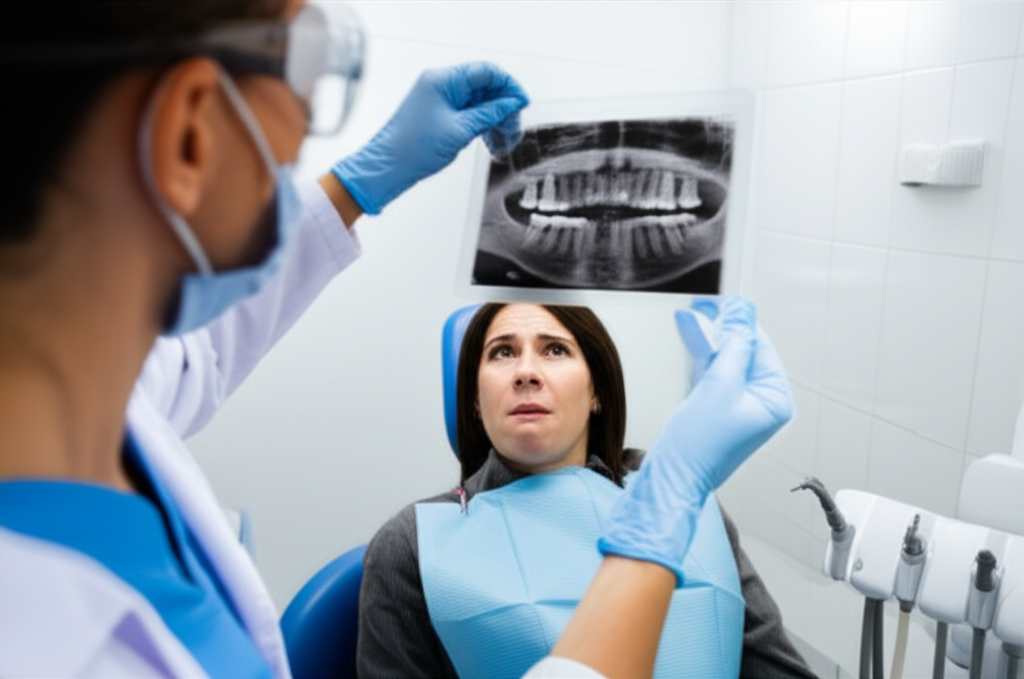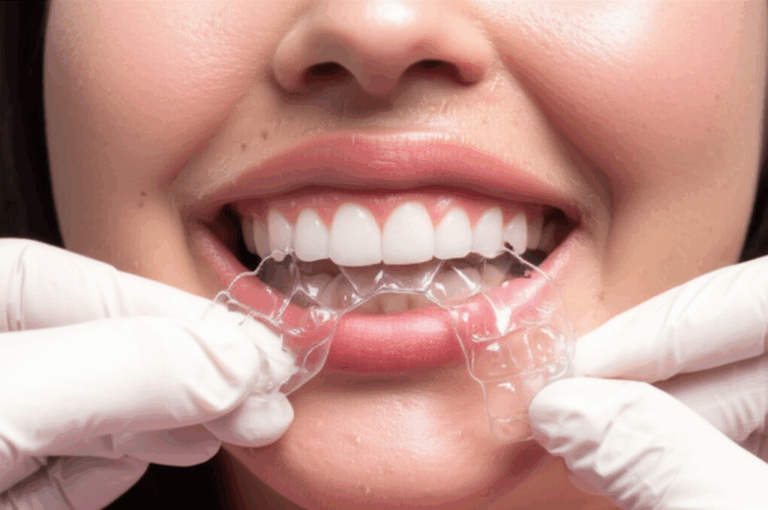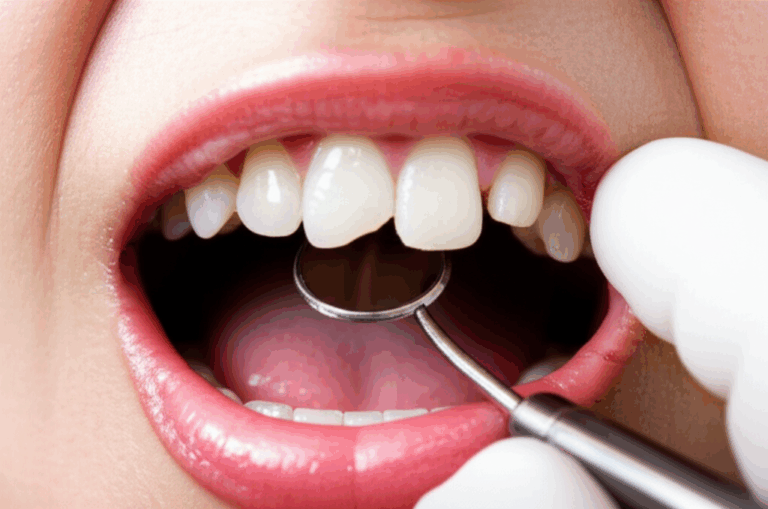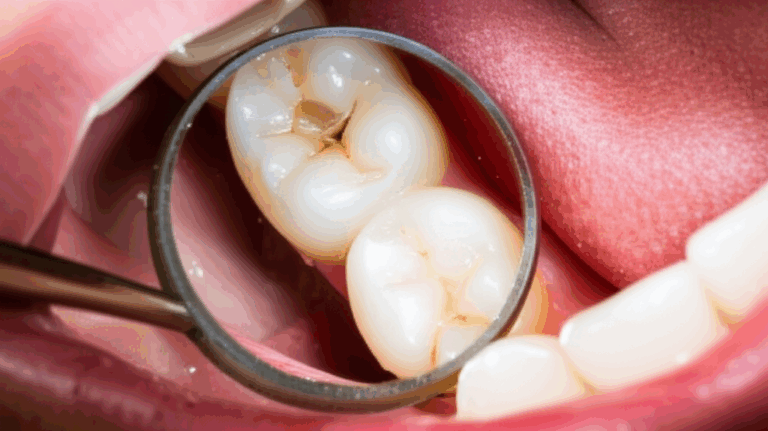
Can a Dentist Force You to Have X-Rays? My Journey to Understanding Your Rights and Consequences
Table of Contents
- The Direct Answer: Can a Dentist Legally Force You?
- Why Dentists Recommend X-Rays: The Diagnostic Value
- Your Rights as a Patient Regarding Dental X-Rays
- Consequences of Refusing Dental X-Rays
- When Are Dental X-Rays Typically Recommended?
- Addressing Radiation Concerns: Safety and Best Practices
- What to Do If You Disagree With Your Dentist About X-Rays
- Dentist’s Perspective: Professional Obligations and Liability
- Key Takeaways: Making an Informed Decision
- My Final Thoughts and Lessons Learned
The Direct Answer: Can a Dentist Legally Force You?
Let me start with the question I once found myself asking, “Can my dentist actually make me get an X-ray?” Like a lot of people, I used to feel a bit powerless in the dental chair, not sure if I had a choice in what happened. Over time, I found out that’s not the case at all.
A dentist can’t legally make you get X-rays. Your agreement—what experts call “informed consent”—is needed for any treatment or test. In every part of healthcare, including going to the dentist, you can say yes or no to any test or treatment, after learning about the risks and benefits. It’s called patient choice, and it’s both a law and a basic part of modern healthcare.
I’ve had dentists tell me this, too. They can suggest or even say X-rays are very important, but in the end, I get to say yes or no.
Why Dentists Recommend X-Rays: The Diagnostic Value
Learning why dentists want X-rays helped me see things differently. The first time I pushed back, my dentist sat down and explained. What I found out:
Finding Hidden Problems: Sometimes, problems start where you and the dentist can’t see—like cavities between teeth, root infections, or bone loss from gum trouble. X-rays are often the only way to catch these early before they turn into something much worse.
Checking Impacted Teeth and Jaws: When I was younger, my wisdom teeth were coming in wrong—I didn’t feel it, but the X-ray showed exactly where they were under the gums.
Making Plans for Treatment: For things like braces or implants, the dentist needs to know what’s underneath. Without an X-ray, they don’t have a clear idea.
Watching Ongoing Issues: I had an old root from a baby tooth, and my dentist checked it with X-rays every year to make sure it wasn’t causing problems.
Now I know X-rays aren’t just for the dentist—they keep my mouth healthier in the long run.
Your Rights as a Patient Regarding Dental X-Rays
After my visits and lots of searching (and a few nerve-wracking talks with healthcare friends), I’ve learned to stand up for my right to decide what happens to my body. Here are those rights:
Informed Consent: What It Means for You
You need to know all the facts—good things, bad things, and choices—before you say yes. That’s why the dentist should tell you why they want X-rays, how often, and anything bad that might come from them, like radiation.
Right to Say No
Here’s the best part: I can say no to X-rays, and so can you. No one can make you get them. Even if the dentist strongly recommends it, you’re the boss.
Ask Questions
You can (and should) ask questions: “Do I really need these X-rays?” or “Can you use my old ones from another place?” Don’t be afraid—it’s your mouth.
Move Previous X-Rays
If you had X-rays before somewhere else, you can ask for those copies to be sent over. I’ve done this and the offices were usually fine about it (sometimes with a small charge, but often for free).
Consequences of Refusing Dental X-Rays
Here’s the part I didn’t know: even though you can say no, you might not get the treatment you want after. When I said no to routine X-rays, my dentist explained his own reasons.
Limited or No Treatment
He told me, “If I can’t see what’s going on under your gums, I could miss something important.” If they don’t look deep enough, it could be bad for both of us. So sometimes the dentist has to say they can’t go ahead with treatment safely.
Incomplete Diagnosis
If you skip X-rays, issues might go unnoticed. I found out the hard way—one time, a cavity between my back teeth grew bigger and by the time it hurt, I needed a root canal. An X-ray before would have shown it when it was small.
Dentist-Patient Relationship
If you keep saying no, some dentists may ask you not to come back. I’ve heard stories where people got “patient dismissal” letters for saying no too many times. Dentists have rules to follow. If you stop them from meeting those rules, they might feel forced to stop treating you.
Insurance Problems
Here’s one that annoyed me: Some insurance plans want X-rays to approve payments for treatment. If you say no, you might have to pay yourself. This happened to me once with a filling—they needed proof, and the X-ray was the proof.
When Are Dental X-Rays Typically Recommended?
After all my appointments, here’s what I learned and checked with a few experts:
New Patients
When you visit a new dentist, they usually want a full set of X-rays to see your dental health from the start.
Regular Check-Ups
On later visits, how often you need X-rays depends on your problems: lots of cavities, gum disease, or other issues. Less risk, less often; more risk, more often.
Specific Issues
If you come in with pain or swelling, targeted X-rays help them find the cause.
Children
For kids, X-rays watch how things are growing and spot early problems. But dentists stick to “only if needed”—kids don’t get extra X-rays just because.
This matches what groups like the American Dental Association (ADA) and American Academy of Oral and Maxillofacial Radiology (AAOMR) say—no one-size-fits-all rule, just use good sense.
Addressing Radiation Concerns: Safety and Best Practices
If you’re like me, you worry about radiation. I used to hold my breath every time the X-ray machine turned on, half expecting to turn into a superhero. But when I looked into it, I stopped worrying so much.
ALARA Principle
Dentists have to use the ALARA idea: “As Low As Reasonably Achievable.” This means only using as much radiation as needed, and only when needed—nothing extra.
Digital X-Rays: Lower Doses
New digital X-rays use much less radiation than older film ones—up to 80-90% less. I always ask the office what kind they use.
Lead Apron and Thyroid Collar
Whenever I get X-rays, I get a heavy apron on my chest and a neck cover. These help block any stray rays.
Context: How Much Radiation?
This helped me get perspective:
- Four bitewing X-rays: about 0.005 millisieverts (mSv)
- One panoramic X-ray: about 0.007 mSv
- Full mouth X-rays: around 0.017 mSv
By comparison, just living in the US gives you about 3.1 mSv every year from everyday things. A long flight will give you even more than a dental X-ray. So, the risk is very tiny when X-rays are done right. Still, don’t be shy about asking “Do I really need this right now?”
What to Do If You Disagree With Your Dentist About X-Rays
I’ve sat in the dentist chair, feeling nervous about more X-rays but not wanting to upset anyone. This is what I found works best.
Open Communication
Tell your dentist how you feel. Share your worries about radiation or anything else that’s on your mind.
Ask for Reasons
Ask them to explain why X-rays are needed this time. You may get a helpful answer. If you’re still not happy, tell them.
Alternatives and Old X-Rays
See if you can skip X-rays or use old images instead. I’ve moved X-rays from one dentist to another when I thought taking more was too much.
Second Opinions
If you’re still unsure, get a second opinion. Another dentist might agree or disagree with the first.
Understand Their Side
It helps to think about the dentist’s position—they have to follow rules and keep you safe. When I tried seeing it their way, the talk got easier.
Dentist’s Perspective: Professional Obligations and Liability
Spending time around dentists—family, friends, and professionals—helped me see why they care so much about X-rays.
Standard of Care
Dentists have rules to follow from groups like the ADA. If they skip an X-ray and miss a hidden problem, it isn’t just bad for you—it’s risky for them legally.
Need for Diagnosis
X-rays aren’t just nice extras—in many cases, they’re needed to get the full story and give safe care.
Legal and Ethical Rules
If a dentist treats you without the needed checks and something goes wrong, they could face lawsuits or trouble with dental boards. When I refused X-rays and then had bigger dental problems, I saw how things got tricky for both me and the dentist.
Key Takeaways: Making an Informed Decision
Let’s look at the main points—the stuff I wish someone told me earlier:
- You Have a Choice: Dentists can’t make you do anything. You must agree first.
- Know the Reason: X-rays really can help. Don’t be scared to ask why.
- Weigh Risks and Benefits: Saying no may mean you can’t get some treatments. Make sure you know what that means.
- Talk It Out: Good, honest talks help a lot.
- Use Your Rights: Move old X-rays if you have them. Speak up for yourself. Try another dentist if you want.
- Safety First: With today’s tools and protection, dental X-ray risk is super low, but always ask if it’s needed.
My Final Thoughts and Lessons Learned
Looking back, I’ve had my share of dental worries—especially about X-rays. Now I take charge of my health. I ask lots of questions. I want clear answers. I make choices based on facts, and I hope you do too.
This can feel scary, but you’re in charge as the patient. No one should make you do something with your health you don’t want—especially in a dental office.
If you want to learn more about dental work, you might check out a digital dental lab, a china dental lab, or even a crown and bridge lab to see how the field is changing. Knowing more about your options just helps you make the best choices.
If you ever feel unsure, speak up—your dentist might be ready to listen and help. And if they aren’t, remember you have other choices out there.
Disclaimer: This article is my own story, talks with dental pros, and a lot of reading from trusted places. It doesn’t take the place of medical advice. Always talk to your dentist or healthcare provider for your personal needs.








